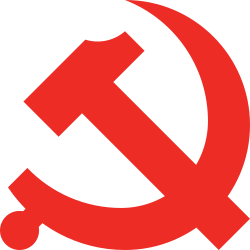History
The first CCP decision-making body related to Taiwan was established in July 1954 by the CCP Central Committee based on Mao Zedong's suggestion, named the Central Leading Group for Taiwan Affairs. Additionally, Premier Zhou Enlai was put in charge of Taiwan-related work. [1]
The work of the group was, along with almost all other leading groups, suspended during the Cultural Revolution. [2] After the end of the Cultural Revolution, the Central Leading Group was restored in December 1979. [2]
This page is based on this
Wikipedia article Text is available under the
CC BY-SA 4.0 license; additional terms may apply.
Images, videos and audio are available under their respective licenses.

